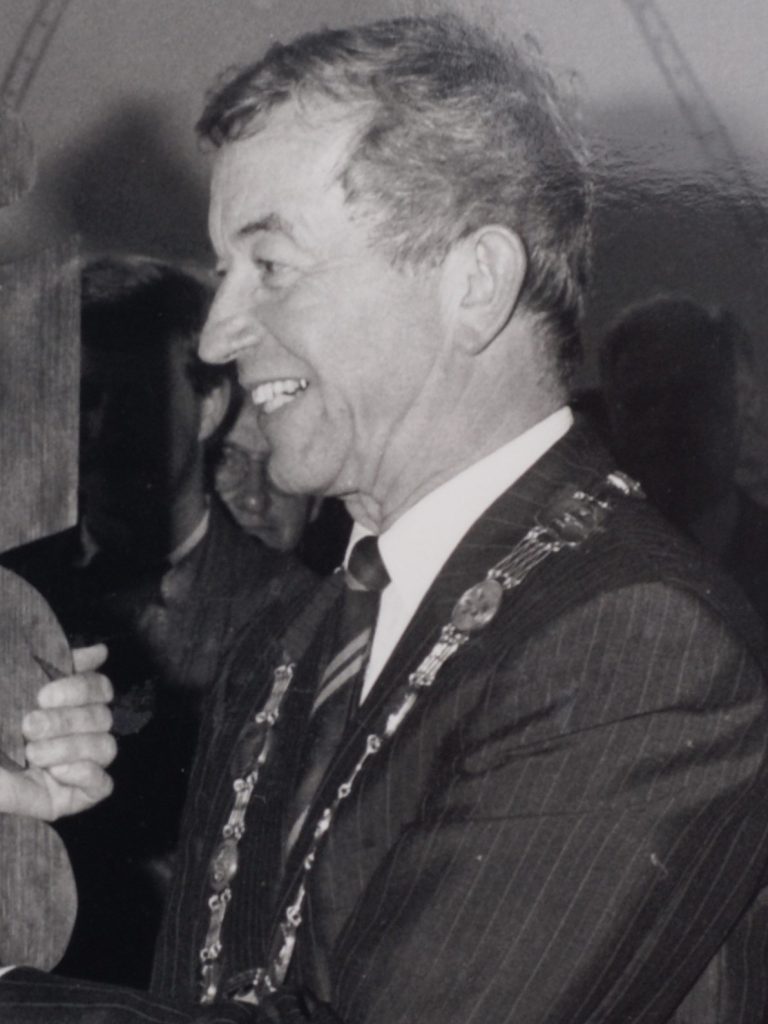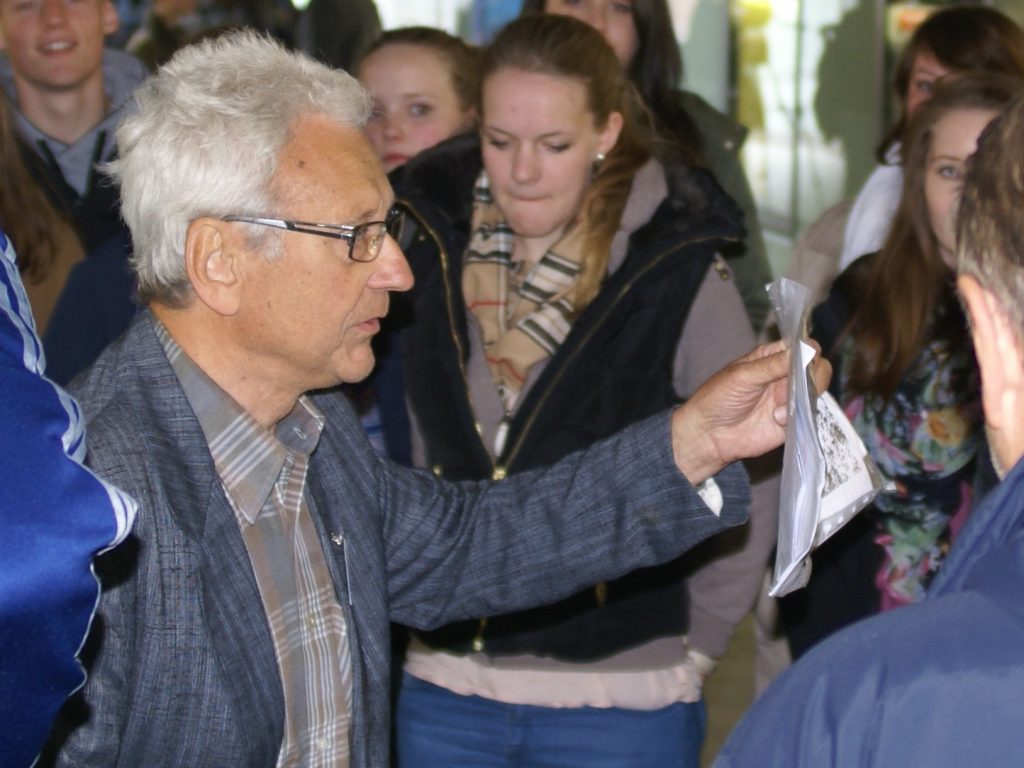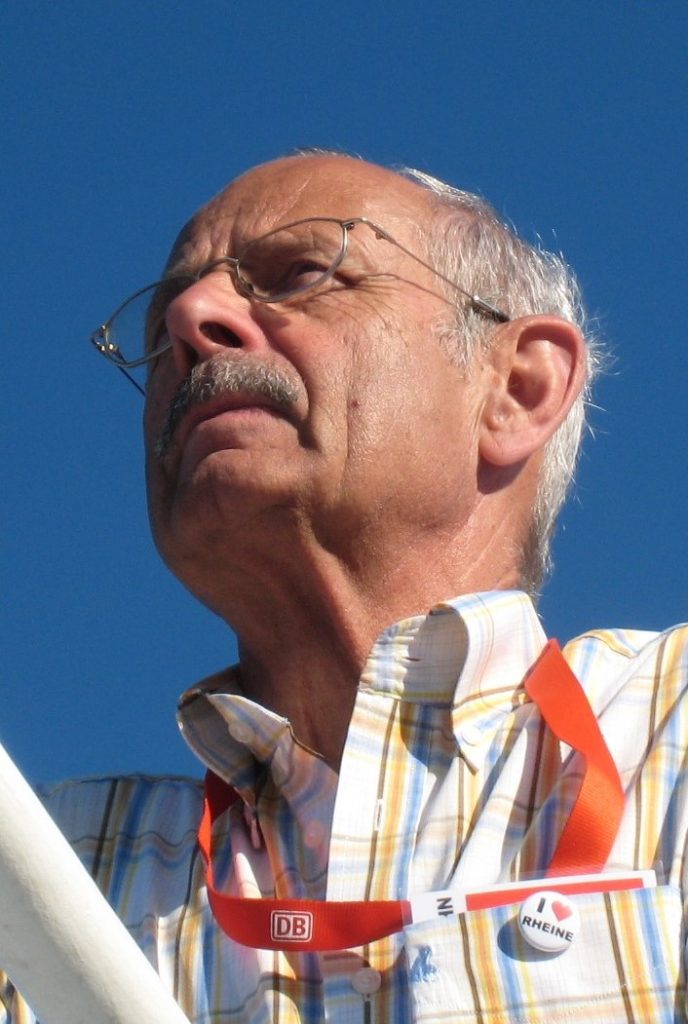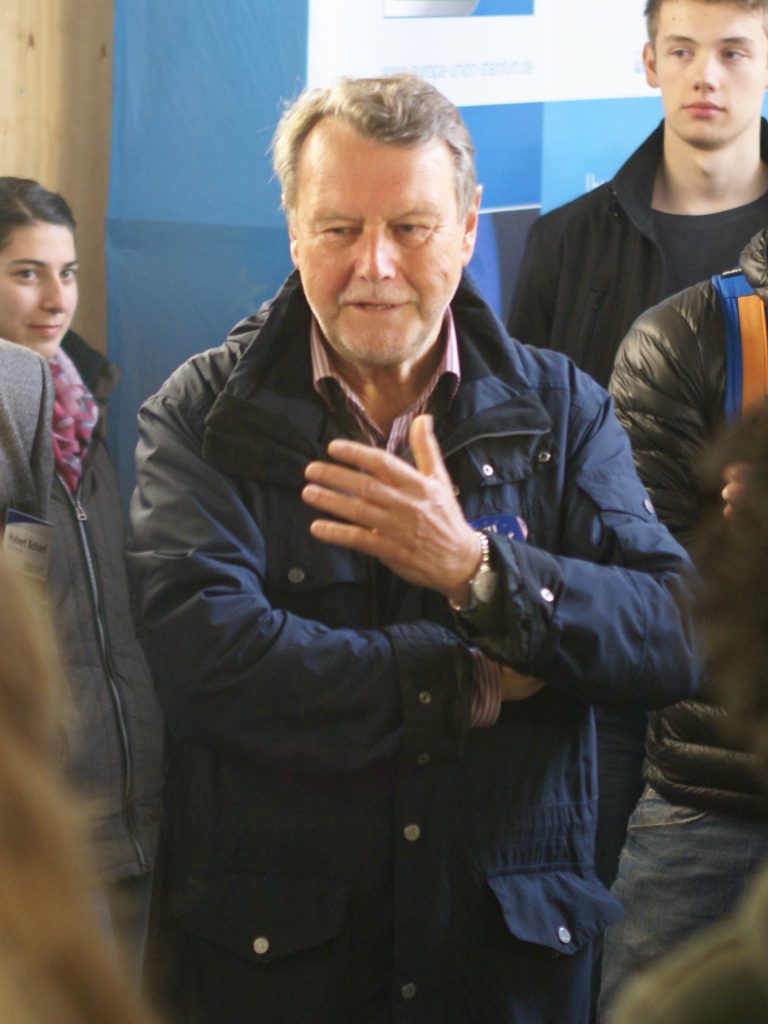The Rheine Town Twinning Association
The people are at the centre of the town twinning in Rheine. They develop the content, shape and promote the encounters and thus bring to life the council resolutions solemnly recorded at the beginning of the partnerships. The history of town twinning meetings in Rheine is inseparably linked with the name of Ludger Meier. As mayor and a convinced European, he laid the foundation stone for the town’s European commitment in the 1970s. He promoted the friendship with the Dutch municipality of Borne that had developed within the framework of the EUREGIO and, as mayor, signed the certificate for Rheine’s first official town twinning in 1983. As chairman, he led the Association for the Promotion of Town Twinning of the City of Rheine from its foundation in 1996 until 2005 and was an honorary member until his death.
Until the founding of the association, the twinning committee developed the German-Dutch town twinning, which was concluded in 1983, and the twinning with the town of Bernburg in Saxony-Anhalt, which was sealed in 1990. Members of the Eastern European Aid Working Group established initial contacts with the Lithuanian town of Trakai in the early 1990s. These were deepened by the EU-funded “CHARIOT Project” initiated by the Rheine Municipality, in which the twinning committee and the twin towns of Borne and Bernburg participated. Finally, at almost the same time, the German-Portuguese Circle of Friends initiated and developed relations with the town of Leiria in Portugal.
In order to exclude competition between these developments and to open up to municipal networks in Europe, which were still unusual at that time, the twinning committee initiated the founding of the Association for the Promotion of Town Twinning of the City of Rheine even before the official conclusion of the town twinning with Leiria and Trakai (1996).
The association is founded on 19 April 1996 by 38 people as a registered association in Rheine. It is started by the members of the Twinning Committee, the Working Group for Eastern European Aid and the German-Portuguese Circle of Friends. The new association is to coordinate the diverse activities of these groups and promote cooperation between the twin towns in networks. Ludger Meier was elected chairman at the founding meeting. He previously headed the German-Portuguese Circle of Friends. The chairman of the twinning committee, Herbert Henneke, became his deputy. Josef Kuberek of the Working Group for Eastern European Aid took over the office of treasurer and city press spokesman Bernd Weber that of secretary. Irene Berning ✝ and Norbert Kahle were elected as assessors. Henrique Köster and Karl Schnieders ✝ were responsible for auditing the accounts.
The Münsterländische Volkszeitung ran the following headline on Monday, 22 April 1996: “The start is successful: New association wants to shape town twinning”. And the text continues: “The city’s leaders can count themselves lucky. Even before the certificates for the town twinning with Leiria and Trakai were signed, committed citizens decided on Friday evening to jointly shape the town twinning with Borne and Bernburg.
According to the statutes, the purpose of the association is “the promotion of town twinning of the town of Rheine”. The founding fathers concretised this general formulation and gave it a European dimension, as it were, with the words: “Through interpersonal encounters, the cultivation of personal friendships and relationships with people in the twin towns, the European feeling of belonging together is to be strengthened and consolidated under the sign of the European spirit”. Accordingly, the central concerns of the association should be the promotion of “interpersonal encounters” and the strengthening and consolidation of a “sense of European togetherness”. Since then, under its chairmen Ludger Meier (1996 – 2005), Alfred Franz (2005 – 2012), Jules Vleugels (2012 -2014), Clemens Schöpker (2014 – 2020) and Reiner Wellmann (from 2020), the association has made it its central mission and working principle to continually create current occasions and contemporary opportunities for this.



